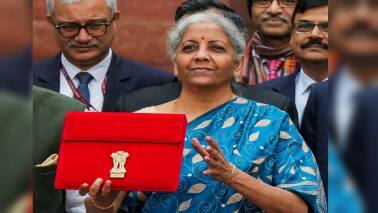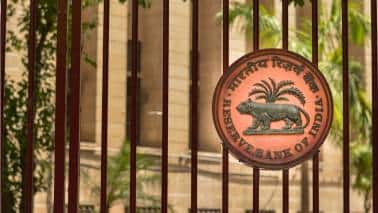
INDIA
Karnataka’s bike ban is a step backward, cities need innovation, not idea bans
The ban has come into effect from June 16 due to the absence of a formal regulatory framework allowing use of privately registered two-wheelers for commercial purposes. The ban seems counterproductive as most urban cities have become quite dependent on these bike taxi services

BUSINESS
Supreme Court’s push to fix medical rates is unjustified and counterproductive
Unfortunately, price controls do not function as a wish granted by a genie, where the government wills it and it miraculously is followed by everyone. Several decades, if not centuries, of evidence should make it evident that price controls have disastrous unintended consequences

BUSINESS
Bangalore Water Crisis: Marginal pricing of water, subsidies to poor may curb water woes
Keeping water prices low for the sake of the poor is clearly harming them. The government can instead charge highest marginal rate of supply or offer subsidies to those who need it

INDIA
Karnataka’s plan to fix prices for Uber-Ola cabs is going to boomerang badly
Prices act as an incentive and as a signal. If price controls were bad enough in distorting the market mechanism, fixing prices is many shades worse. There will be shortages and excesses in the market as price signals no longer work. There is no incentive for drivers to go through peak hour traffic or unfavourable weather conditions when the compensation is the same as in normal conditions

BUSINESS
Why Budget 2024 will rank as a good budget
There were no big, populist measures with an eye on polls. The intent to upgrade passenger train bogeys to Vande Bharat standards and creation of a Rs 1 lakh crore corpus with 50-year interest-free loans for tech savvy youth were among the most exciting parts of an otherwise boring budget

BUSINESS
Global Economy 2024: Positives in macro outlook outweighing uncertainties, India in a position to dream big
Though global recession predictions for 2023 fell flat, some caution on the US economy is warranted. If the Chinese slowdown does not spread into a global contagion, India can count on bright spots like the China + 1 strategy attracting companies and investments seeking to exit China and downward pressure on commodity prices. Rate cuts in the US will increase liquidity and potentially higher FDI and FII flows into India in 2024, and Indian equity markets are definitely an attractive proposition

POLITICS
Reservation For Locals: Whither jobs, economic freedoms, and economic unity?
No sooner than the Haryana law mandating 75% private reservation for local residents was struck down, comes a draft Kerala IT policy with incentives to investors offering jobs for locals. Amid a festering jobs crisis and governments having no qualms in interfering in business, may better economic sense prevail.

BUSINESS
G20 Summit: India takes its Digital Public Infrastructure success to the world
India has successfully advocated the importance of G20 undertaking the necessary steps for developing a global digital public infrastructure. Ensuring consensus among G20 leaders was just the start. Building a Global DPI won’t be easy and goes beyond transfer of technology. Aim for a high-quality global DPI that addresses cybersecurity and privacy concerns

BUSINESS
The many messages from NCAER’s report on food delivery gig workers
Decline in real wages of food delivery workers and around a third of them holding graduate degrees reveal a dire unemployment situation. Instead of blaming platforms for the condition of gig workers, governments must facilitate manufacturing, skilling, basic safety nets and quality education

BUSINESS
Don’t rush to mimic Rajasthan gig workers law
The Rajasthan legislation could soon be followed by kneejerk copycat laws in other states as everyone feels the acute need for social security for gig workers. But quite a few aspects of the new law’s design including a welfare board – a suboptimal solution till date – and a new cess, are problematic

BUSINESS
India mustn’t miss this chance to supercharge its electronic goods industry
Blaming the Information Technology Agreement-1 (ITA-1) for China edging out Indian manufacturers and snubbing the new ITA-2 agreement won’t fix our failings in R&D investment or industrial innovation. Higher tariffs won’t help either as competitive exports require cheap imports. India should join ITA-2 like China did with ITA-1 and negotiate better terms

BUSINESS
Government overreach in digital economy could end up with no commensurate benefit and serious distortions
Market dominance of a few big foreign companies can be corrected by strengthening regulators like CCI, instead of government rushing in as a player. A digital foray like ONDC is requiring discounts for customer acquisition, raising questions about the costs of underwriting such ventures. Government’s gatekeeping privileges and grievance redressal are worries too

BUSINESS
Rs 2,000 Note Withdrawal: No demonetisation redux but RBI could have done it better
Recall of the 2,000-rupee note has set off another round of consternation about currency management in the country. Banks could have been told to silently keep depositing the Rs 2,000 notes with the RBI whenever they get it instead of the convoluted rules that will de facto end its legal tender status today onwards, instead of September 30

BUSINESS
Labour Law Reforms: Tamil Nadu reversing flexible work shifts is lost opportunity for business, workers, jobseekers
There’s evidence that rigid labour laws are impacting output and productivity. Unfortunately, discourse on labour regulation is often framed as a zero-sum game – business versus labour – one winning at the other’s expense. But labour reforms help draw in larger investments, which leads to higher employment, productivity, and wages

BUSINESS
Lessons for RBI from its mandate that made recurring payments a nightmare
Subscription services, and firms dependent on recurring transactions for subscription revenues, were badly hit. Easy exits for consumers locked into unhelpful subscriptions shouldn’t be RBI’s remit. Central bank must focus on monetary policy, stabilising the financial system and making payment systems better







